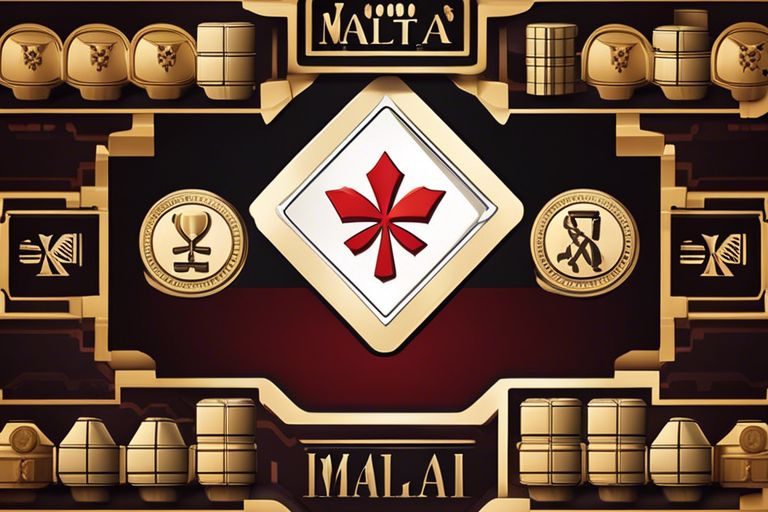Exploring Malta's Gaming Legislation

Just as the online gaming industry continues to flourish, it’s crucial to investigate into the robust regulations and legislation that govern it. In recent years, Malta has positioned itself as a leading jurisdiction for online gaming, attracting numerous operators to its shores. Understanding the comprehensive framework provided by the Malta Gaming Authority (MGA) is vital for both industry insiders and enthusiasts. This blog post aims to shed light on the intricacies of Malta’s gaming legislation, including licensing requirements, player protections, and the strict measures in place to combat money laundering and problem gambling. Stay informed and empowered in the dynamic world of online gaming with a deeper look into Malta’s regulatory landscape.
The Evolution of Gaming Legislation in Malta
Historical Overview of Gaming Laws
The gaming industry has deep roots in Malta, dating back to the early 19th century when lottery games were introduced by the British colonial authorities. In the late 20th century, Malta started to establish itself as a jurisdiction for gaming operations, paving the way for the comprehensive gaming legislation we see today.
Key Legislative Milestones
With the enactment of the Lotteries and Other Games Act in 2001, Malta laid the foundation for its modern gaming regulatory framework. This was followed by the establishment of the Malta Gaming Authority (MGA) in 2004, which further solidified Malta’s reputation as a leading jurisdiction in the gaming industry.
Plus, Malta’s proactive approach to regulating the gaming sector has attracted numerous international gaming companies to set up operations in the country. The MGA continuously updates its regulations to adapt to the evolving needs of the industry, ensuring a secure and competitive gaming environment in Malta.
The Malta Gaming Authority (MGA)
Clearly, the Malta Gaming Authority (MGA) plays a crucial role in regulating the gaming industry in Malta. Established in 2001, the MGA is responsible for overseeing all gaming activities in the country to ensure compliance with local laws and international standards.
Establishment and Responsibilities
Responsibilities: The MGA is responsible for issuing licenses to gaming operators, monitoring their activities, and enforcing regulations to safeguard players’ rights and maintain the integrity of the gaming industry in Malta.
Licensing and Regulation Processes
Any: Operators seeking a license from the MGA must undergo a rigorous application process that includes background checks, financial audits, and compliance assessments. The MGA also regularly reviews license holders to ensure ongoing compliance with regulations.
The MGA’s licensing and regulation processes are known for their thoroughness and transparency, making Malta a preferred jurisdiction for many gaming operators looking to establish their businesses in Europe. It’s crucial for operators to adhere to the MGA’s strict standards to maintain a good standing in the industry.
Player Protection and Compliance
Ensuring Fair Play and Security
For a player, peace of mind is crucial when engaging in online gaming. Malta’s gaming legislation prioritizes player protection by enforcing strict regulations to ensure fair play and security. Stringent measures are in place to prevent fraud, hacking, and cheating, safeguarding the integrity of games and transactions.
Anti-Money Laundering Measures
For any jurisdiction’s gaming industry, combating money laundering is a top priority. Malta has implemented robust anti-money laundering measures to prevent illicit funds from flowing through the gaming sector. Operators are required to conduct thorough due diligence on players, monitor transactions for suspicious activities, and adhere to stringent reporting guidelines.
Ensuring compliance with anti-money laundering measures is important to safeguard the reputation of Malta’s gaming industry and protect it from being exploited by criminal elements. Operators must implement comprehensive policies and procedures to detect and prevent money laundering activities effectively. Failure to comply with these regulations can result in severe penalties, including hefty fines and potential license revocation.
Taxation and Economic Impact
The Gaming Tax Framework in Malta
To comprehend the economic significance of Malta’s gaming industry, it is crucial to understand the tax framework governing this sector. For gaming operators holding a Malta Gaming Authority license, the tax regime is structured at a flat rate of 5% on real income derived from gaming activities. This advantageous tax rate has been a key factor in attracting numerous gaming companies to establish their operations in Malta.
Contributions to the Maltese Economy
Contributions from the gaming industry play a vital role in boosting the Maltese economy. With a high concentration of gaming companies within its borders, Malta has experienced substantial economic growth and job creation. In 2019 alone, the gaming industry contributed over 1.56 billion euros to Malta’s economy, accounting for approximately 12% of the country’s GDP. Additionally, the sector has been a significant source of employment, offering job opportunities to local residents and expatriates alike.
Understanding the economic impact of the gaming sector on Malta underscores its importance as a key driver of economic growth and stability in the country. The substantial contributions made by gaming companies through taxes, job creation, and overall economic activity highlight the sector’s positive influence on the Maltese economy.
Contemporary Challenges and Reforms
Adapting to Technological Advances
For the gaming industry in Malta to remain at the forefront, it must constantly evolve to keep pace with technological advancements. From the growth of mobile gaming to the rise of virtual reality and blockchain technology, the landscape is rapidly changing. The challenge lies in ensuring that regulatory frameworks can effectively address these new technologies while also fostering innovation.
International Collaboration and Policy Harmonization
On the international front, collaboration between different regulatory bodies is crucial for addressing the global nature of the gaming industry. By harmonizing policies and standards, countries can work together to combat issues such as money laundering, fraud, and problem gambling. This not only strengthens the industry’s credibility but also ensures a safer and more secure environment for players.
A key advantage of international collaboration is the ability to share best practices and learn from each other’s experiences. Joint efforts can lead to more efficient regulatory processes and better enforcement mechanisms, ultimately benefiting both regulators and operators alike.
Final Words
With this in mind, exploring Malta’s gaming legislation has shed light on the comprehensive framework that regulates the gaming industry in the country. By understanding the key principles of the regulations and licensing requirements, both players and operators can navigate the landscape with confidence and ensure a safe and fair gaming environment. Malta’s reputation as a leading jurisdiction for online gaming is upheld by its commitment to transparency, integrity, and innovation in the industry. As the gaming sector continues to evolve, Malta’s legislation will play a crucial role in shaping its future development and maintaining its position as a global hub for gaming excellence.
Recommended Posts

The World of Wearable iGaming Tech
May 17, 2024

Going Live – Surge of Live Stream Gambling
May 17, 2024

Malta’s Coastal Drives for Road Trippers
May 17, 2024




